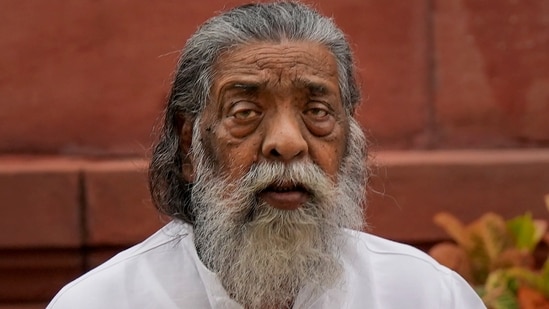
Introduction
Shibu Soren, an influential figure in Indian politics, has played a pivotal role in the state of Jharkhand. As the founder of the Jharkhand Mukti Morcha (JMM) and a former Chief Minister, his contributions to the region have shaped its political landscape. Understanding Soren’s impact provides insight into the complexities of Jharkhand’s socio-political environment, especially as the 2024 elections approach, where his legacy and leadership continue to resonate.
Early Life and Political Rise
Born on January 27, 1944, in the Santhal Parganas district of Bihar (now Jharkhand), Shibu Soren emerged as a symbol of tribal rights and advocacy. His early involvement in activism led him to establish the JMM in 1972, aiming to fight for the rights of tribal communities in Jharkhand. Over the decades, Soren became known as “Guruji,” a reverent title reflecting his influence and respect among followers.
Political Achievements
Shibu Soren’s political journey has been marked by several achievements. He served as Chief Minister of Jharkhand on three occasions – in 2005, 2008, and 2009 – during which he focused on tribal rights, education, and infrastructure development. His tenure is noted for advocating policies that aimed to uplift marginalized communities, yet he has also faced criticism and challenges, including political instability and corruption allegations.
Current Role and Influence
Despite stepping back from the forefront of politics in recent years, Soren’s influence remains potent in Jharkhand. His son, Hemant Soren, currently serves as Chief Minister, continuing the family’s political legacy. Shibu Soren’s insights and experience continue to guide the JMM as they approach the upcoming elections, where issues such as tribal rights, economic development, and anti-corruption remain at the forefront of the political dialogue.
Conclusion
Shibu Soren’s enduring influence on Jharkhand politics underscores the significance of regional leaders in shaping local governance. As Jharkhand prepares for the 2024 elections, Soren’s legacy presents both a challenge and an opportunity for the JMM and other political parties striving for the support of the state’s diverse electorate. His contributions to advocating for tribal rights and development will likely remain topics of discussion as political dynamics evolve in the region.



